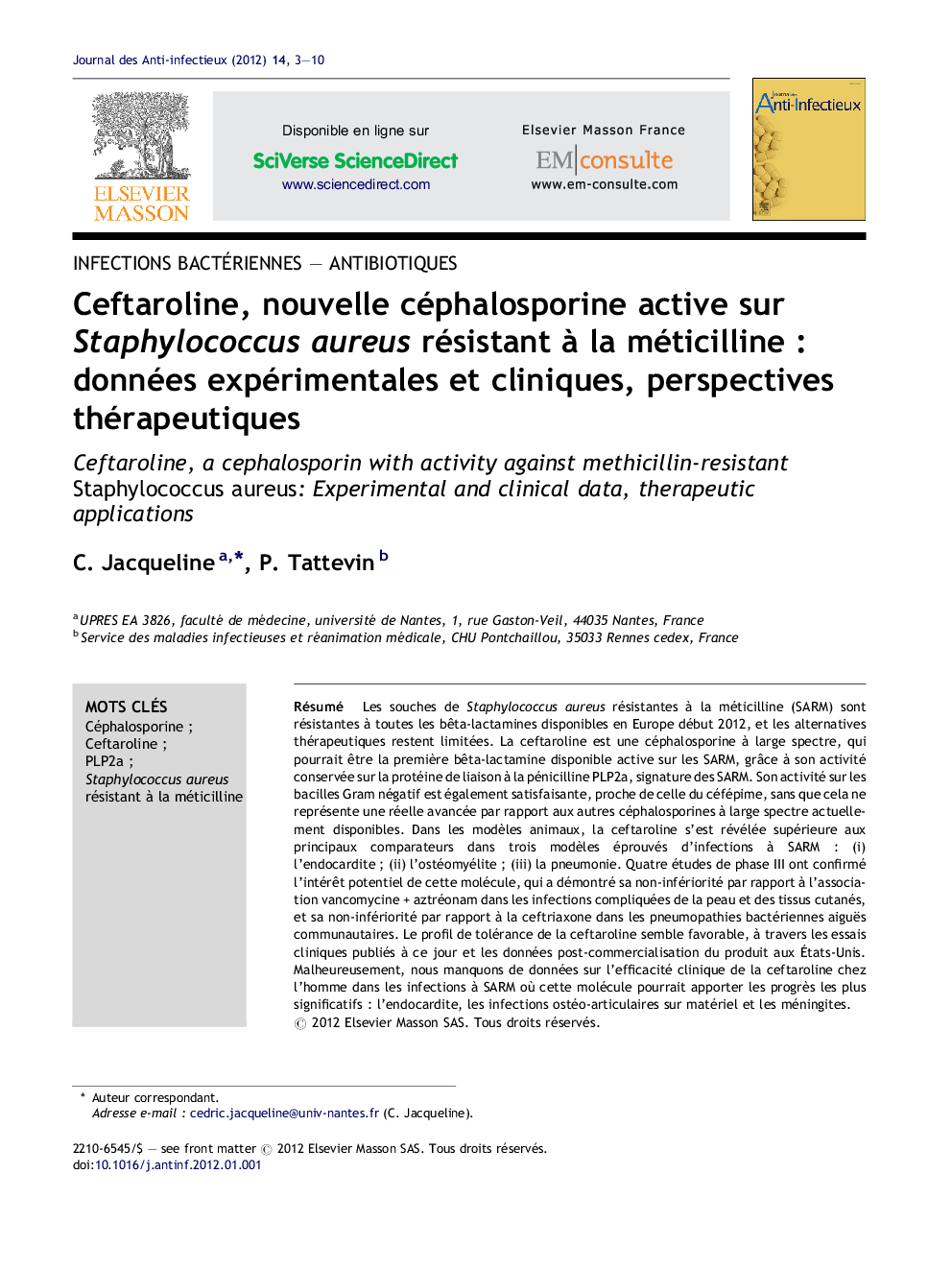| Article ID | Journal | Published Year | Pages | File Type |
|---|---|---|---|---|
| 3405500 | Journal des Anti-infectieux | 2012 | 8 Pages |
Abstract
Methicillin-resistant Staphylococcus aureus (MRSA) are resistant to all beta-lactam agents licensed to date, and alternative treatments are limited. Ceftaroline is a novel broad-spectrum cephalosporin that binds with high affinity to PBP2a, the penicillin-binding protein that mediates methicillin resistance of staphylococci, and is thus active against MRSA. Against Gram-negative bacteria, ceftaroline efficacy is comparable to that of cefepime for Enterobacteriaceae and non-fermenting rods. In animal models, ceftaroline proved to be superior to most comparators in well-validated experimental MRSA infections: (i) endocarditis; (ii) osteomyelitis; (iii) pneumonia. Phase III clinical studies found that ceftaroline was non-inferior to the combination of vancomycin and aztreonam for the treatment of complicated skin and skin structure infections, and non-inferior to ceftriaxone for the treatment of community-acquired bacterial pneumonia. In addition, these phase III studies as well as post-marketing surveillance in the USA did not reveal any significant safety concerns. Unfortunately, there are currently no published data in patients with other infections, including MRSA endocarditis, osteoarticular infections on prosthetic devices, and meningitis, where ceftaroline may be a very significant progress over currently available agents in our therapeutic armentarium.
Keywords
Related Topics
Health Sciences
Medicine and Dentistry
Infectious Diseases
Authors
C. Jacqueline, P. Tattevin,
